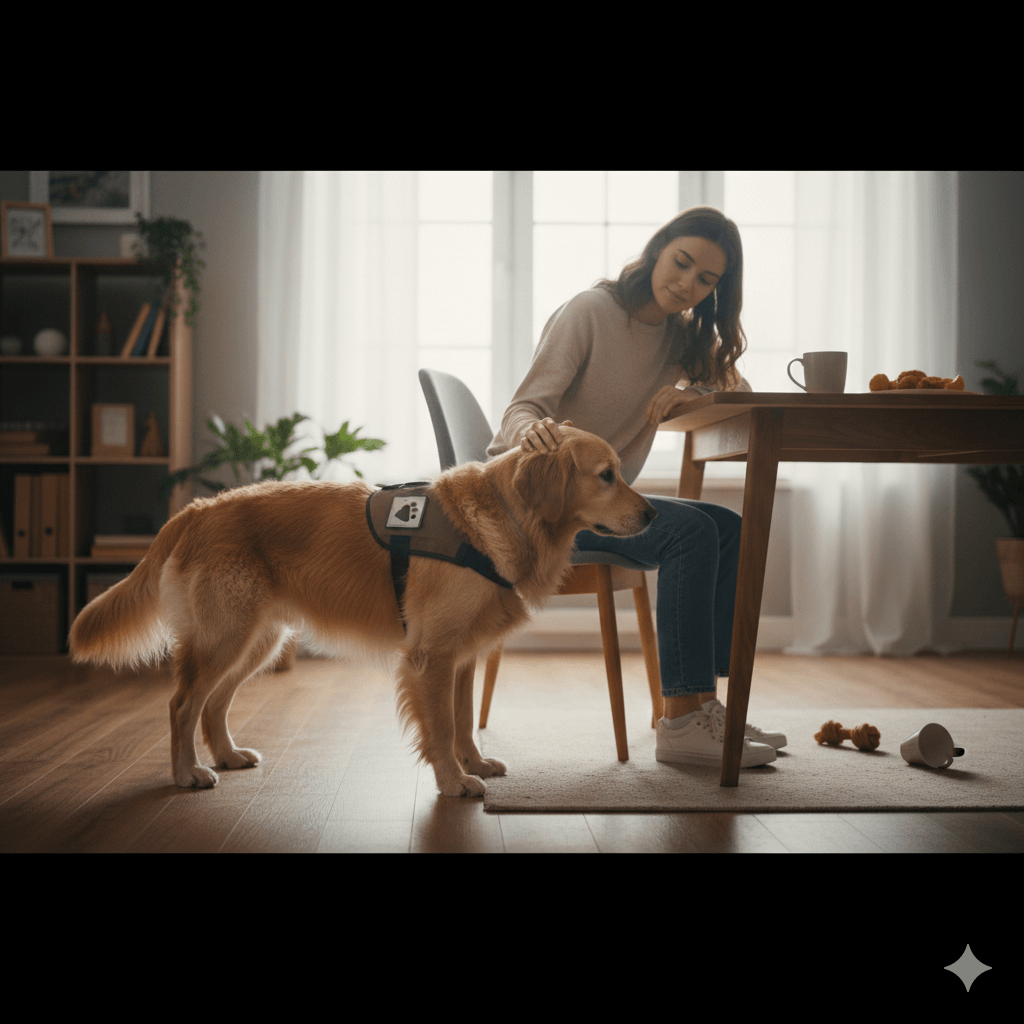How to Get Your Dog to Sleep Through the Night: A Restful Guide for Pet Owners
A good night’s sleep is essential not just for you but also for your furry companion. However, if your dog is restless at night, it can disrupt your sleep and leave both of you feeling tired and frustrated. Whether you’re dealing with a new puppy, an older dog, or a rescue pup adjusting to their new home, teaching your dog to sleep through the night is possible with patience and consistency. In this blog post, we’ll explore practical tips, training techniques, and solutions to help your dog settle into a peaceful nighttime routine. Let’s work together to ensure everyone in the household gets the rest they deserve.
Understanding Why Your Dog Wakes Up at Night
Before addressing the issue, it’s important to understand why your dog might be waking up during the night. Dogs have different sleep patterns than humans, and several factors could contribute to their restlessness. Here are some common reasons:
Hunger or Thirst: If your dog hasn’t eaten enough during the day, they may wake up looking for food or water.
Bathroom Needs: Puppies and senior dogs often need more frequent bathroom breaks, which can interrupt their sleep.
Anxiety or Stress: Changes in routine, separation anxiety, or unfamiliar environments can make your dog feel uneasy at night.
Lack of Exercise: Insufficient physical or mental stimulation during the day can leave your dog with excess energy at bedtime.
Health Issues: Conditions like pain, discomfort, or urinary tract infections can cause nighttime awakenings.
Identifying the root cause of your dog’s nighttime restlessness is the first step toward finding a solution. Once you understand why your dog is waking up, you can address the issue effectively.
Practical Tips to Help Your Dog Sleep Through the Night
Teaching your dog to sleep through the night requires consistency and a structured approach. Here are some actionable tips to help your dog settle down and stay asleep:
Establish a Consistent Routine: Set regular feeding, walking, and bedtime schedules to help your dog feel secure and predict what comes next.
Provide Mental Stimulation During the Day: Engage your dog in activities like puzzle toys, obedience training, or interactive play to tire them out mentally.
Limit Evening Meals and Snacks: Avoid feeding your dog too close to bedtime to prevent hunger or late-night bathroom trips.
Create a Comfortable Sleeping Space: Ensure your dog’s bed is cozy, quiet, and free from distractions to encourage relaxation.
Use Calming Techniques: Incorporate calming scents like lavender, white noise machines, or soft music to soothe your dog before bed.
By implementing these strategies, you can create an environment that promotes restful sleep for your dog and minimizes disruptions during the night.
Check this guide 👉How to Get Papers for a Dog: Best 7 Expert Tips!
Check this guide 👉Why Does My Dog Sleep with Eyes Open? Best 7 Expert Tips!
Check this guide 👉Why Does My Dog Have to Sleep Touching Me? Best 7 Tips!

Tips for Helping Your Dog Sleep Better | Common Mistakes to Avoid |
|---|---|
Stick to a consistent daily routine | Feeding your dog right before bed |
Provide plenty of exercise and playtime | Allowing late-night attention-seeking |
Use calming aids like white noise | Ignoring signs of anxiety or stress |
Create a designated sleeping area | Overlooking potential health issues |
Gradually adjust sleep habits | Skipping bathroom breaks before bed |
Training Techniques to Encourage Nighttime Sleep
Training plays a crucial role in teaching your dog to sleep through the night. With patience and positive reinforcement, you can help your dog associate bedtime with calmness and rest. Here are some proven techniques:
Crate Training: Teach your dog to view their crate as a safe, comfortable space where they can relax and sleep undisturbed.
Positive Reinforcement: Reward your dog with treats or praise when they settle quietly in their sleeping area to reinforce good behavior.
Ignore Attention-Seeking Behavior: Avoid giving in to barking or whining at night, as this can reinforce the behavior and make it worse.
Gradual Adjustment: If your dog is used to sleeping late, slowly shift their bedtime earlier by 15-minute increments each night.
Pre-Bedtime Rituals: Establish a calming routine, such as a short walk or brushing session, to signal that it’s time to wind down.
Consistency is key when using these techniques. Over time, your dog will learn to associate bedtime with rest and relaxation.
Addressing Specific Challenges with Nighttime Sleep
Every dog is unique, and some may face specific challenges that make sleeping through the night more difficult. Here are tailored solutions for common scenarios:
Puppies Needing Frequent Bathroom Breaks: Take your puppy out for a final potty break right before bed and limit water intake an hour before bedtime.
Older Dogs with Health Issues: Schedule regular vet check-ups to rule out conditions like arthritis or urinary problems that could disrupt sleep.
Anxious or Rescue Dogs: Provide extra comfort through items like weighted blankets or pheromone diffusers to ease anxiety.
Dogs Who Bark or Whine at Night: Address underlying causes like boredom or loneliness by increasing daytime activity and providing mental stimulation.
Dogs Who Sleep in Your Bed: If you prefer your dog to sleep elsewhere, gradually transition them to their own bed using positive reinforcement.
By addressing these specific challenges, you can tailor your approach to suit your dog’s individual needs and improve their nighttime sleep.
How to Design the Perfect Sleeping Space for Your Dog
Your dog’s sleeping environment plays a crucial role in helping them feel safe and relaxed at night. A well-designed space can significantly improve their ability to sleep through the night. Here are some tips to create a sleep-friendly environment:
Choose a Quiet Location: Place your dog’s bed away from high-traffic areas or noisy appliances like washing machines or TVs.
Provide Comfortable Bedding: Use soft, supportive bedding that suits your dog’s size and preferences, especially if they have joint issues.
Minimize Distractions: Remove toys, food bowls, or other items that might tempt your dog to stay awake.
Control Lighting: Dim the lights or use blackout curtains to signal that it’s time for rest and mimic natural nighttime conditions.
Maintain a Consistent Temperature: Ensure the room is neither too hot nor too cold, as extreme temperatures can disrupt your dog’s sleep.
By optimizing your dog’s sleeping area, you can help them feel secure and encourage deeper, uninterrupted sleep. A peaceful environment sets the stage for success.
Addressing Nighttime Anxiety in Dogs
Separation anxiety is a common issue that can prevent dogs from sleeping through the night. If your dog becomes anxious when left alone, it’s important to address this behavior to ensure everyone gets restful sleep. Here are strategies to manage nighttime separation anxiety:
Gradual Alone Time: Start by leaving your dog alone for short periods during the day and gradually increase the duration to build confidence.
Use Calming Tools: Consider products like anxiety wraps, pheromone diffusers, or calming sprays to soothe your dog before bed.
Create Positive Associations: Reward your dog with treats or praise when they remain calm in their sleeping area to reinforce positive behavior.
Avoid Reinforcing Anxiety: Resist comforting your dog excessively when they whine or bark, as this can reinforce attention-seeking behavior.
Consult a Professional: If anxiety persists, seek guidance from a certified dog trainer or animal behaviorist for personalized advice.
By addressing separation anxiety, you can help your dog feel more secure and reduce nighttime disruptions. Patience and consistency are key to overcoming this challenge.
How Nutrition Impacts Your Dog’s Sleep Quality
What your dog eats can directly affect their energy levels and ability to sleep soundly at night. A balanced diet not only supports overall health but also promotes better sleep habits. Here’s how to adjust your dog’s diet for improved nighttime rest:
Feed Earlier in the Evening: Avoid late meals that could cause discomfort or the need for a bathroom break during the night.
Include Protein-Rich Foods: High-quality proteins provide essential nutrients that support muscle repair and relaxation during sleep.
Limit Sugary Treats: Sugary snacks can spike your dog’s energy levels and make it harder for them to settle down at bedtime.
Add Omega-3 Fatty Acids: Found in fish oil or flaxseed, these healthy fats can reduce inflammation and promote relaxation.
Ensure Proper Hydration: Make sure your dog drinks enough water throughout the day, but limit access an hour before bed to prevent midnight potty trips.
By fine-tuning your dog’s diet, you can support their physical and mental well-being, making it easier for them to sleep through the night. Always consult your vet before making significant dietary changes.
Frequently Asked Questions About Getting Your Dog to Sleep Through the Night
How long does it take to train a dog to sleep through the night?
It varies depending on the dog, but with consistency, most dogs can learn within a few weeks.
Should I let my dog cry it out at night?
It depends on the situation. For puppies, it’s better to address their needs promptly, while older dogs may benefit from ignoring attention-seeking behavior.
What if my dog wakes up early in the morning?
Gradually adjust their bedtime and wake-up time to align with your schedule, and avoid reinforcing early wake-ups with attention.
Can I use medication to help my dog sleep?
Only under the guidance of a veterinarian, as medications should be a last resort after addressing behavioral and environmental factors.
Why does my dog sleep all day and stay awake at night?
This could indicate insufficient daytime stimulation or an underlying health issue; consult your vet to rule out medical causes.
Final Thoughts: Building Healthy Sleep Habits for Your Dog
Helping your dog sleep through the night is a process that requires patience, consistency, and understanding. By identifying the reasons behind their restlessness, establishing a calming routine, and addressing specific challenges, you can create a peaceful nighttime environment for your furry friend. Remember, every dog is different, so don’t hesitate to adapt these tips to fit your dog’s unique personality and needs. With time and effort, you’ll both enjoy restful nights and wake up refreshed, ready to tackle the day together.
Understanding Bone Supplement for Cats: Best 7 Expert Tips! – Safe, vet-approved guidance for strong feline bones & balanced nutrition.
Bone Supplement for Dogs: Best 7 Expert Tips! – Expert guide to calcium, collagen & bone health for every life stage.
Understanding Can Cats Get Sunburn: Best 7 Expert Tips! – Protect your feline from UV damage with vet-backed prevention strategies.
How to Train a Seizure Alert Dog: Best 7 Expert Tips! – Learn expert-backed steps to nurture natural instincts into reliable, life-saving seizure alerts.





